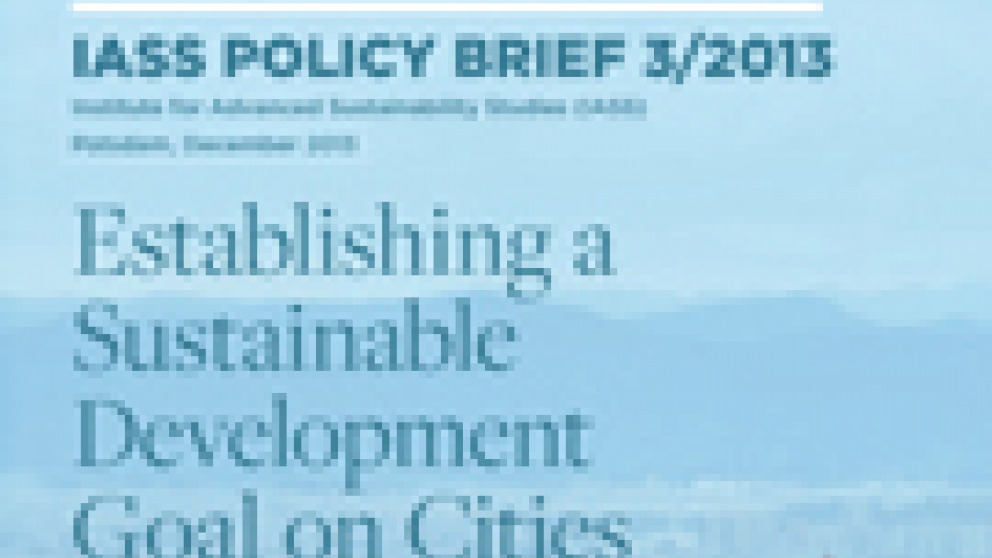IASS Policy Brief 3/2013 published – Establishing a Sustainable Development Goal on Cities
08.01.2014

Multi-level governance, when taken seriously, requires integrative elements, and a Sustainable Development Goal (SDG) on Cities should be one of them. Besides addressing rapid urbanisation and its impact on sustainable development, a stand-alone SDG on Cities would bring political benefits to the post-2015 development agenda. It would empower local governments within the post-2015 framework, encourage nation-states to strengthen vertical policy integration and disaggregated monitoring; foster local alliances in sustainable development (SD) domains other than climate change; and enhance the visibility of SDGs at societal level. Therefore, the present policy brief explicitly supports the current campaign for an SDG on Cities, as initiated by the Sustainable Development Solutions Network (SDSN), UN-Habitat, and several local government associations.

